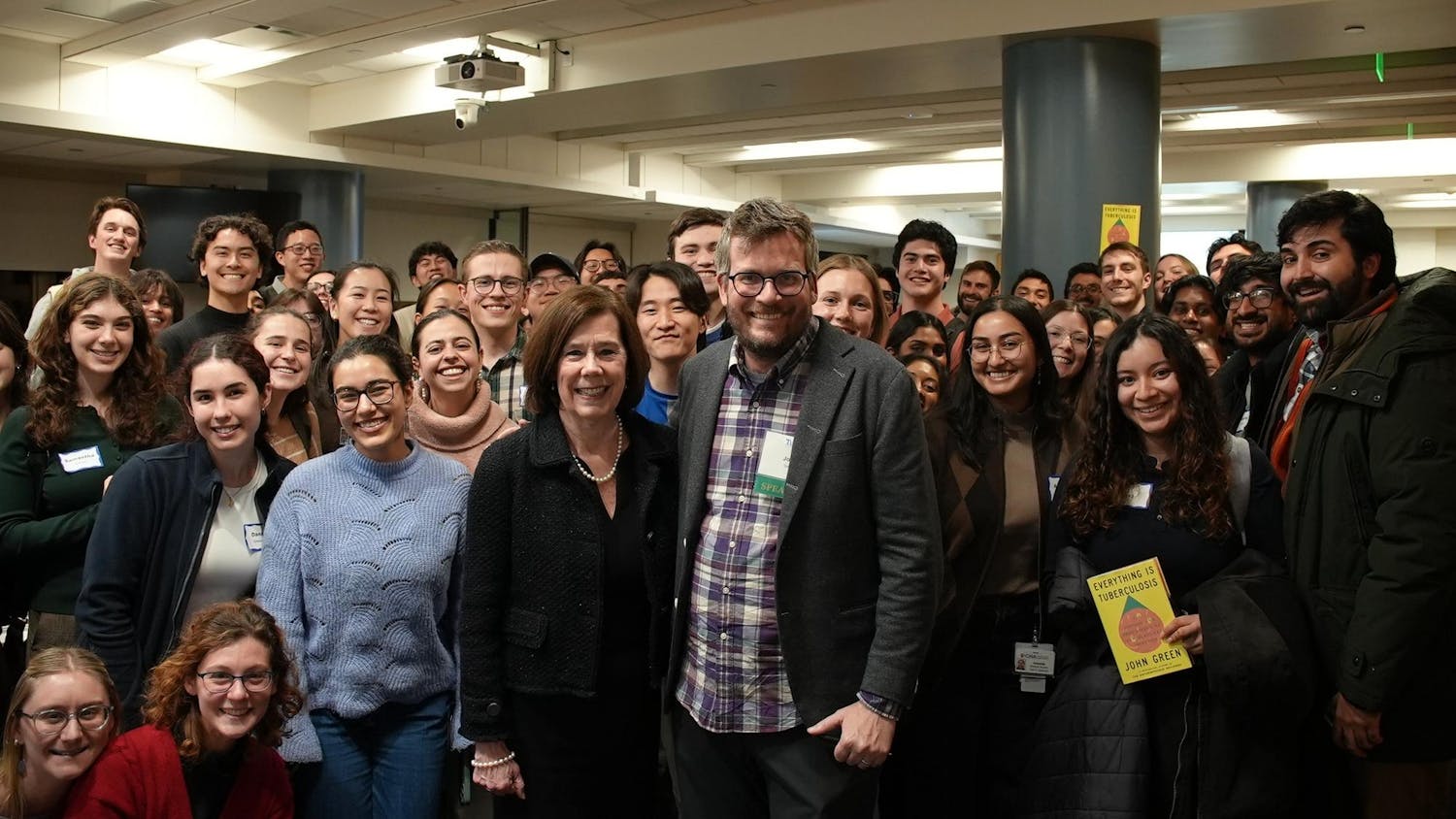Disclaimer: Brendan Hartnett and Allie Birger are former editorialists at The Tufts Daily. They were not involved in the writing or editing of this article.
Consortium is the term for a network of colleges that share scholastic resources by allowing students to cross-register for classes at any of the institutions. Tufts has consortium agreements with multiple institutions, serving various groups of undergraduate and graduate students. While these consortiums stretch the range of academic offerings within our reach, cross-registration can be a cumbersome process. The question, then, is whether this process is justified by the academic opportunities that consortiums present to students.
Elizabeth “Betsy” Johnson, an associate registrar, explained exactly how a student might go about the cross-registration process.
“The first step is they need to get permission from the instructor at the other school and ... from that school's registrar. And then finally, they need to turn in [a] form to our side. So we register them in sort of a placeholder class on our end, the host school will register them in the actual class on their end,”Johnson said. “And then at the end of the semester, the host school will tell us what grade they got, and we'll put that grade ... on their Tufts transcript.”
Though Johnsondoes not advise students directly, she notices a wide variety of consortium classes that draw Tufts students.
“Sometimes it's departments that we don't have here. So, for example, business courses, or I've seen a fair amount of language courses that we don't have here — Korean or Swahili, I've seen a few times,"Johnson said. "And then sometimes it's courses from departments that we do have, but maybe we don't have their specific interests."
For Allie Birger, a senior pursuing a sociologymajor and Englishminor, her cross-registration story started with a Tufts course called Qualitative Research Methods which she took in her junior year.
“I really enjoyed the topic that I researched about Jewish summer camps," Birger said. "I was like, ... 'I want to change what I’m doing a little bit and make it a thesis.'”
She read a significant amount of research by Leonard Saxe, a professor at Brandeis, to whom she reached out and ended up working with at the Brandeis Cohen Center for Modern Jewish Studies. This unexpectedly led Birger to conduct fieldwork in Israel, for which she earned class credit, following an 80-page report and book reflections.
This semester, Birger is cross-registered for a Brandeiscourse on survey methods taught by Saxe.
“It’s actually a Ph.D. class, which is very exciting,”Birger said. “[It’s] really cool because [the] Tufts ... [sociology] department doesn't have a survey methods class. They have qualitative and quantitative methods but nothing specifically on surveys.”
An alternative to cross-registration is to take a class outside existing consortiums and request a transfer of credit to have it count toward a Tufts degree. Normally, such classes would have to be paid for out-of-pocket by the student.
However, junior Brendan Hartnett was granted an exception for a Harvardpoliticalscience course called Modelsthis semester.
“The professor's letting me audit the course ... but still grading me,”Hartnett said. “I'm planning on applying to grad school ... and being that this is a course that ... would be helpful for that, he [was] completely receptive, just as long as there [weren’t] too many people for safety during COVID.”
Hartnett's grade in Models will then be reflected on his transcript as a grade in an independent study. The Harvard course tackles advanced statistical modeling in the social sciences as well as machine learning. Hartnett discussed some of the noticeable differences between this course and comparable courses at Tufts.
“It’s much harder, in part because ... it’s open to both undergrads and grad students,"Hartnett said, "[but also] it's a lot of really independent learning."
Hartnett also noticed a difference in atmosphere between Harvard and Tufts.
“It feels, at least as an outsider, like it's a more competitive environment than at Tufts,”Hartnett said. “First class, I probably had imposter syndrome, but then ... I just bought into the semi-competition, all while getting to know people.”
Stella Gitelman Willoughby is an eighth-semester student at Berklee College of Music, which is not a part of a consortium with Tufts. Nevertheless, she successfully navigated the administrative process to take a class at the Medford/Somerville campus, in addition to classes at Boston University and the New England Conservatory.
“I probably would have taken something at my home college if they had offered it. But they didn't offer the kind of in-depth specific topic that I was curious about,”Gitelman Willoughby said. “The class I took [at Tufts] was [David] Proctor’s ... Europe to 1815 in the history department. I commuted almost every day ... it was such a wonderful experience.”
Birger is able to commute 20 minutes by car to Brandeis yet noted that traveling for in-person classes might dissuade some Tufts students from cross-registration, as well as a general lack of awareness about our consortiums.
“We already have a really great program here [at Tufts]. We have really great professors. We have really great resources. People might also just not know that it's an option. I didn't know that it was an option,"Birger said. "It's also far if you don't have a car. It's hard to get to BC [or] Brandeis without that."
On the topic of the rarity of cross-registration among Tufts students, Hartnett said, “I guess it's not that popular in part because of the schools in our consortium, unless you are interested in the arts or music ... academic [rigor] is probably highest at Tufts of those schools. So I wonder if that's part of it.”
Johnson also speculated on some of the reasons as to why cross-registration may be a rare choice among students.
“I don't know if maybe advisers aren't fully aware of it, or people just don't think of it as an option sometimes, but it's definitely a great opportunity. And it would be great if more students could take advantage,"Johnson said.
Then what makes cross-registration — or even taking a class outside the consortium — worth it?
At Tufts, Gitelman Willoughby sought to challenge herself at an academically rigorous liberal arts university and cherished the friendships she made.
“Getting to know other people in other classes was one of the wonderful perks of going to these other schools," Gitelman Willoughby said. "I have some great friends that I've made at Tufts, and I'm so fortunate for them."
Students who cross-register or enroll as visitors at other campuses typically gain access to other school resources too. These may include access to the library, digital platforms orCOVID-19 testing. Furthermore, the consortiums expand educational possibilities without incurring further expenses from students. However, accessibility is the true barrier to the consortium system, taking into account the administrative process as well as the time, ease and cost of transportation.
Nonetheless, consortiums can allow students to broaden their horizons and engage with courses they may not otherwise have been able to take.
"There's much more to learn ... just by the nature of being around other students and other faculty members and other information going around in a different environment,"Gitelman Willoughby said.
Birger shares the same sentiment.
“If you're passionate about something that Tufts doesn't have, and there's an opportunity at another school — run with it!”






